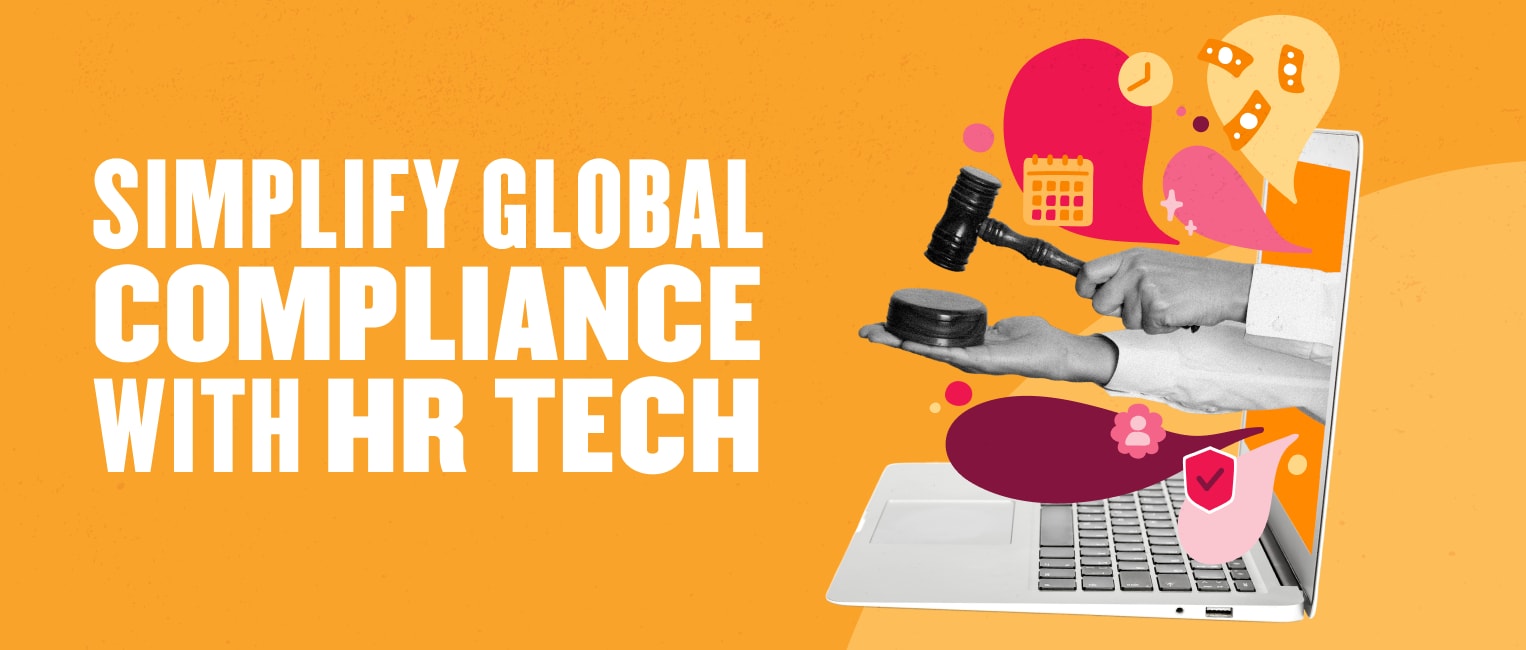Modern companies are expanding globally.
While this means more business opportunities and more revenue, it also brings more regulations to comply with in every jurisdiction.
But herein lies the issue: Multi-national compliance is complex and constantly changing. New laws crop up continuously. HR professionals and legal teams must be forever proactive to stay ahead and take action.
This is one of the biggest reasons why compliance readiness is currently top-of-mind for HR and legal teams. It’s especially true as many companies prepare for brand new laws, such as the European Corporate Sustainability Reporting Directive (CSRD) set to take effect in early 2025, and the UK CSR law set to take effect in July 2024.
According to research from Baker Tilly International, these laws “will have a major impact on any company” with people and operations in the EU and UK. The CSRD for the EU alone will impact around 50,000 companies globally, but only 12 percent of those surveyed said they feel ready.
However, there is a way to ensure companies can be ready for any new legislation and maintain their compliance with each new introduction—the key is HR tech.
HR teams can leverage quality modern HR tech with built-in people analytics to:
- Simplify compliance challenges—from privacy laws like GDPR to new CSR laws and fair compensation, time tracking, and data security
- Set custom KPIs per region to identify gaps in metrics such as DE&I reporting, time-to-hire, and training and development
- Track progress toward your custom KPIs
- Automatically generate reports to keep you on track—and prove compliance—at global sites every step of the way
Keep up with corporate sustainability laws
Both the UK CSR law and EU CSRD law are on strict timelines, coming into effect in July 2024 and January 2025, respectively.
With the looming deadlines rapidly approaching, there is an urgent need to prepare now to be in compliance on time.
As well as environmental and emissions reporting, the UK CSR law dictates that companies listed in the London Stock Exchange must report on progress towards DE&I targets for financial years starting April 1, 2022. This includes everything from racial equality assessments to reports on how companies combat harassment and discrimination in the workplace.
In comparison, the EU CSRD law will transform European ESG sustainability reporting. It will impact any large companies with over 250 people and over €50M in turnover. The law requires companies to publish information on environmental protection, as well as social responsibility, respect for human rights, anti-corruption and bribery, and DE&I of company boards.
Between them, organizations with people working in either the UK or EU must report on a long list of KPIs including DE&I reporting, the number of people by type (such as temp workers, contractors, full-time or part-time), workforce gender ratios, number of union members, and how much sick leave people are taking.
All of this reporting requires an enormous amount of people data. Luckily, the best-in-class, modern HR tech helps HR teams:
- Discover gaps in their organization
- Aggregate people data based on representation in their workforce across multiple sites
- Set goals based on regional laws to get an overview of current performance
- Gain insights from data and use it to build a strategy that bridges the gaps
Pay transparency and compensation
Another major factor that determines how organizations must abide by these laws—and a hot topic in global businesses today—is pay transparency.
Traditionally, many organizations shied away from sharing any information about compensation. Today, many strive towards it on the way to establish pay equity. Again, this requires a lot of data, this time on salaries and hourly wages, which could potentially swamp HR and finance teams.
Instead, HR tech can help teams ensure that they remain compliant with pay transparency legislation thanks to features like pay bands for current team members and open positions.
“But won’t those pay transparency and compensation laws be different around the world?” you might ask.
The answer is yes. But top-tier HR tech can ensure compliance with local compensation laws at each global site. HR teams can use this HR tech to set policies based on the requirements at each site, update them as needed, and generate custom reports to demonstrate compliance with each law.
Time and attendance tracking
From vacation time and time off in lieu to clocking in and clocking out, an incredible number of figures go into tracking people’s time and attendance.
The larger and more widespread the organization is around the globe, the more HR teams can benefit from implementing multiple policies to ensure compliance with regional laws around attendance.
Keeping track of everyone, their work patterns, and maintaining compliance with local laws at every site can be a huge day-to-day undertaking—but modern HR tech can do the heavy lifting.
HR teams that leverage HR tech dodge these complications by enabling flexibility around attendance for any kind of work structure across different regions. This gives people the ability to stay in full control of their own time while providing HR teams with visibility.
In addition, HR teams can use HR tech to keep track of and report on regional PTO and overtime requirements.
Recommended For Further Reading
Keep people’s personal information secure
Two of the biggest safety concerns in modern business are personally identifiable information (PII) security and product security. It’s vital to keep people’s personal information secure, whether it’s benefits packages, salary or hourly wages, or benefits reductions. Organizations can boost their reputations and build trust with their customers by safeguarding these areas.
However, it’s also important to ensure that PII and product information are easily accessible by the right people when they need it.
HR professionals can strike the right balance between security and accessibility with robust HR tech that includes security features built to safeguard PII and ensure compliance with regional privacy laws like GDPR.
Secure HCMs follow clear and robust security guidelines that protect access to data throughout the platform—and any third-party integrations as part of a company’s tech stack—by assigning proper roles and permissions. This means only authorized people have access to specific and sensitive data.
These HCMs also use data encryption and require consent to access sensitive data like PII.
This not only gives people confidence that their data is secure and protected—it also means they have the flexibility to access their own details whenever they need it (or others if they are granted the right permissions), without wading through multiple checks or controls.
Getting ready for change
Class-A HR tech provides you with robust people analytics and reporting features that help you track and generate custom reports on all your people data, identify where you’re smashing KPIs, and pinpoint areas where you need to improve so you’re ready for any audits.
Evolving regulations bring an ever-growing complexity to compliance for multi-national companies, especially within HR and legal teams.
Today, organizations can streamline their compliance efforts with modern HR tech. You can use it to help comply with existing laws around pay transparency, time and attendance tracking, and privacy legislation like GDPR. And you can rest easy when you use it to prepare for upcoming laws like the UK’s CSR and EU’s CSRD with confidence.


